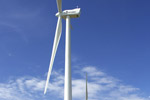America’s favorite astrophysicist, Neil deGrasse Tyson, tackled climate change on the most recent episode of the hit show, Cosmos: A Spacetime Odyssey. The episode, the ninth in the series, looked back on the climatic and physical upheavals undergone by Earth, before highlighting the mild interglacial climate that allowed the human species to kickstart the neolithic revolution and the first civilizations.
“About 10,000 years ago, the manic swings of the climate and sea levels came to a stop. A new and gentler climate age began. It’s the one we’re living in now. When the great ice sheets melted, the seas rose to its present height and the rivers carried silt from the highlands to build great delta plains where they met the sea,” deGrasse Tyson narrates. “On those fertile plains, we learned a new way of life: how to grow things, to feed ourselves, and more. For most of us, this meant an end to a million years of wandering. The way the planets tug at each other, the way the skin of the Earth moves, the way those motions affect climate and the evolution of life and intelligence, they all combined to give us the means to turn the mud of those river deltas into the first civilizations. There is nothing like an interglacial period, one of those balmy intermissions in an ice age.”
While, deGrasse Tyson notes that this interglacial period is supposed to last another 50,000 years, current global warming—due to burning fossil fuels—is causing the climate to shift again.
 Neil deGrasse Tyson hosting the Apollo 40th anniversary celebration in 2009. Photo by: NASA. |
“We’re dumping carbon dioxide into the atmosphere at a rate the Earth hasn’t seen since the great climate catastrophes of the past, the ones that led to mass extinctions. We just can’t seem to break our addiction to the kinds of fuel that will bring back a climate last seen by the dinosaurs, a climate that will drown our coastal cities and wreak havoc on the environment and our ability to feed ourselves,” Tyson says.
Indeed the second Intergovernmental Panel on Climate Change (IPCC) report published this year found that climate change was already impacting global society in a number of different ways, including decreasing agricultural output, acidifying the oceans, worsening extreme weather, and even exacerbating the risk of civil conflicts. The new 2,300 page report included over 700 authors and nearly 2,000 expert and government reviewers, making it one of the most rigorously reviewed pieces of science around the world.
“All the while, the glorious sun pours immaculate free energy down upon us, more than we will ever need,” says Tyson. “Why can’t we summon the ingenuity and courage of the generations that came before us? The dinosaurs never saw that asteroid coming. What’s our excuse?”
Related articles
Earth has fourth warmest March on record as forecasters see possible El Nino rising
(04/23/2014) Last March was the fourth warmest on record, according to new data from the National Oceanic and Atmospheric Administration (NOAA). Overall, temperatures were 0.71 degrees Celsius (1.28 degrees Fahrenheit) above the 20th century average during March. Looking at the first three months of 2014, this year is the seventh warmest on record to date.
Behind the scenes of Showtime’s blockbuster series on climate change

(04/18/2014) For years climate change activists and environmentalists have been clamoring for a high-profile, high-impact TV series about climate change to make Americans more aware of an issue that will affect billions of people around the globe in coming decades. This week they finally got it when Showtime released the first episode of Years of Living Dangerously, a big-budget TV series featuring a number of Hollywood’s biggest stars as reporters and corespondents.
Rainforests on fire: climate change is pushing the Amazon over the edge

(04/18/2014) From 1999-2010, nearly three percent of the Amazon rainforest burned, and climate forecasts indicate dry conditions conducive to fire will only become more commonplace in the future. A new study indicates that rainforests are more vulnerable to fire than previously thought, and it warns the current combination of climate change and deforestation may be pushing Amazon forests past the breaking point.
Climate change solution? UN touts ambitious (but cheap) investment in renewable energy

(04/14/2014) The world is warming rapidly due to greenhouse gas emissions, threatening everything from our food supply to our ecosystems, but the solution may be surprisingly cheap, according to the third and final report from the Intergovernmental Panel on Climate Change (IPCC). The report recommends a rapid and aggressive switch from fossil fuel-based energy to renewables.
Featured video: Showtime releases first episode of major new climate change series online

(04/08/2014) Although Showtime’s landmark new climate change series doesn’t premiere until Sunday, the network has released an edited version of the first episode of Years of Living Dangerously to the public (see below). The nine-part documentary series is being billed as a “groundbreaking” exploration into the many ways that climate change is already wreaking havoc on the lives of people around the world.







